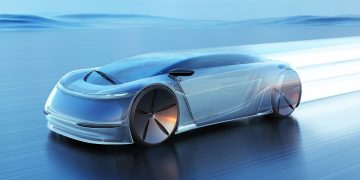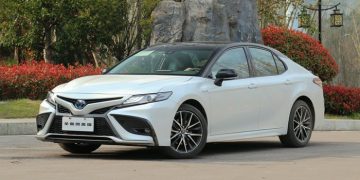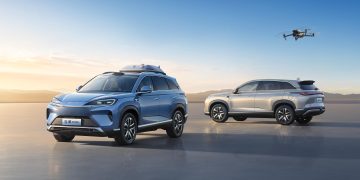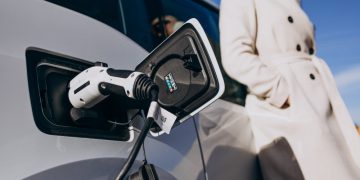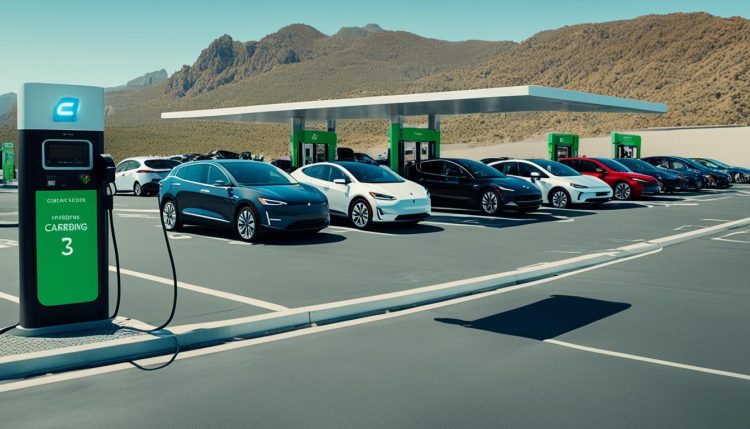The automotive industry is at a pivotal moment in its history. For over a century, traditional internal combustion engine (ICE) vehicles have dominated the market. However, the shift toward electric vehicles (EVs) is rapidly changing the dynamics of the industry. As consumer demand for cleaner, more sustainable transportation solutions rises, legacy car manufacturers—those established companies that have historically focused on gas-powered vehicles—are faced with a critical decision: adapt to the new era of electrification or risk becoming obsolete.
This article explores the strategies traditional automakers are employing to adapt to the EV market, the obstacles they face, and how electric vehicles are reshaping the industry landscape. It also delves into the impact on traditional manufacturers’ supply chains and the evolving competitive dynamics as the automotive sector embraces this transformative change.
The Rise of Electric Vehicles: A New Industry Paradigm
Electric vehicles, once considered a niche market, have gained significant traction in recent years. The global shift toward sustainability, government regulations, and technological advancements have all played a role in accelerating the adoption of EVs. In particular, concerns about climate change and air pollution have driven both consumers and governments to seek out cleaner alternatives to the traditional gasoline-powered vehicle.
Government policies, such as stricter emissions regulations and incentives for EV buyers, have also created a more favorable environment for electric cars. Countries around the world are setting ambitious targets to phase out ICE vehicles in favor of EVs, with some nations planning to ban the sale of new gas-powered cars entirely within the next few decades.
For traditional automakers, this shift represents both an opportunity and a challenge. On one hand, the growing demand for electric vehicles presents a chance to diversify their product offerings and tap into a burgeoning market. On the other hand, legacy manufacturers must overcome significant barriers to successfully transition from traditional gasoline-powered cars to electric vehicles.
Strategies Employed by Legacy Car Manufacturers to Adapt to the EV Market
In response to the EV revolution, traditional automakers have implemented a variety of strategies aimed at ensuring their relevance in the new era. These strategies are multifaceted and involve significant investments in research and development (R&D), partnerships, manufacturing capabilities, and marketing. Some of the most prominent approaches include:
1. Transitioning to EV Production
Many legacy automakers are committing to electrifying their entire product lineup. This transition often involves a multi-year strategy, with automakers gradually phasing out their internal combustion engine (ICE) vehicles in favor of electric models. For example, General Motors (GM) has announced plans to exclusively produce electric vehicles by 2035. Similarly, Volvo has committed to becoming a fully electric car company by 2030.
These plans typically involve the development of new electric vehicle platforms that are designed specifically for EVs, rather than adapting existing ICE platforms. This shift allows manufacturers to optimize battery integration, maximize performance, and lower production costs. The transition to EV production also requires significant investment in new manufacturing facilities and technologies, which can be a financial burden for companies with large existing infrastructures.
2. Investing in Battery Technology
Battery technology is one of the most critical components of electric vehicles, and its performance directly impacts the range, charging time, and overall cost of an EV. As such, legacy car manufacturers are investing heavily in developing their own battery technologies or partnering with battery suppliers to secure a reliable and cost-effective supply of batteries.
For instance, Ford has formed a partnership with SK Innovation to produce batteries for its upcoming electric vehicles, while Volkswagen has invested billions in its own battery production facilities. Additionally, companies like BMW and Audi are actively researching solid-state batteries, a next-generation technology that promises to improve battery efficiency and reduce production costs.
3. Collaborations and Partnerships with Tech Companies
Legacy automakers are increasingly partnering with tech companies to leverage their expertise in software, artificial intelligence (AI), and autonomous driving technologies. These partnerships are essential for developing the smart features and connectivity that are becoming standard in modern electric vehicles.
For example, Ford has teamed up with Google to integrate its Android operating system into its cars, enabling in-car Google Assistant, Google Maps, and other apps. Similarly, General Motors has partnered with Qualcomm to integrate 5G connectivity into its vehicles, improving vehicle-to-vehicle and vehicle-to-infrastructure communication.
These collaborations not only help legacy car manufacturers remain competitive but also ensure that their vehicles are equipped with the advanced technologies that consumers now expect.
4. Shifting to Direct-to-Consumer Sales Models
In addition to product development, legacy automakers are also reevaluating their sales and distribution models. As consumer preferences shift, many traditional car manufacturers are exploring new ways to sell their electric vehicles directly to consumers. Tesla has pioneered the direct-to-consumer model, bypassing traditional dealerships and selling its vehicles online or through company-owned showrooms.
In response, companies like Ford and General Motors are adopting similar strategies by offering direct sales channels through online platforms. This shift not only allows automakers to better control the customer experience but also provides valuable data that can be used to improve vehicle design and marketing.
Challenges Faced by Legacy Car Manufacturers in Transitioning to EVs
While legacy car manufacturers are making significant strides toward electrification, they face numerous challenges along the way. These challenges range from technological hurdles to supply chain disruptions, and they require innovative solutions to overcome.
1. High Costs of Transition
The transition from internal combustion engines to electric powertrains is costly. Legacy automakers must invest in new factories, retrain workers, develop new vehicle platforms, and design battery systems. Additionally, EVs are often more expensive to produce than traditional vehicles due to the high cost of batteries, though prices are expected to fall over time as economies of scale kick in.
These high costs place significant pressure on the profitability of legacy automakers, particularly those that rely on the sale of traditional gas-powered vehicles for the majority of their revenue. While governments are offering incentives to support the transition to electric vehicles, the overall financial burden remains a challenge for many companies.
2. Supply Chain and Resource Constraints
The supply chain for electric vehicles is complex and relies heavily on raw materials such as lithium, cobalt, and nickel for battery production. The scarcity of these materials, coupled with the rising demand for EVs, has led to concerns about potential supply shortages and price increases.
Moreover, the shift to electric vehicle production requires automakers to establish new supply chains for components like batteries, electric motors, and power electronics. This can be particularly challenging for legacy manufacturers that have long-established relationships with suppliers of internal combustion engine components.

3. Competition from New Entrants
The rise of electric vehicles has brought a wave of new entrants into the automotive market. Tesla, the most notable of these, has proven that an electric car company can succeed without the legacy of an internal combustion engine. Tesla’s dominance in the EV market has forced traditional automakers to catch up, and the competition is only getting fiercer.
Additionally, startups and tech companies are now entering the EV market with innovative approaches, further intensifying the competitive pressure. Legacy manufacturers must not only contend with established EV players but also adapt to the rapidly evolving technological landscape.
4. Consumer Perception and Adoption
One of the significant barriers to widespread EV adoption is consumer perception. Many consumers remain hesitant to switch to electric vehicles due to concerns about range anxiety, charging infrastructure, and the perceived lack of variety in electric car options. While EV adoption is growing, it still represents a relatively small share of total vehicle sales in many markets.
Legacy automakers must work hard to change consumer perceptions and convince them that electric vehicles can meet their needs just as well as traditional vehicles. This requires a concerted effort in marketing, education, and expanding charging infrastructure.
The Impact of Electric Vehicles on Traditional Manufacturers and Supply Chains
The shift toward electric vehicles is having a profound impact on traditional manufacturers and their supply chains. The automotive industry is undergoing a fundamental transformation, with a shift in production processes, supplier relationships, and workforce requirements.
1. Changing Production Processes
Electric vehicle production is fundamentally different from internal combustion engine vehicle production. EVs have fewer moving parts, which reduces the complexity of the manufacturing process. However, the assembly of batteries and electric drivetrains requires specialized facilities and expertise.
As legacy car manufacturers transition to electric vehicle production, they must overhaul their manufacturing processes to accommodate these changes. This includes the construction of new factories, the adoption of new automation technologies, and the development of new training programs for workers.
2. Impact on Supply Chains
Electric vehicle production relies on different raw materials and components than traditional vehicles, which is causing shifts in automotive supply chains. For instance, the growing demand for lithium, cobalt, and nickel for batteries has led to increased competition for these resources. This is forcing legacy manufacturers to establish new partnerships and secure long-term supply contracts to ensure they have access to these critical materials.
At the same time, automakers are also rethinking their relationships with traditional suppliers of engine and transmission components, as these parts are no longer needed in EV production. This is leading to a realignment of the supply chain and the emergence of new players focused on electric vehicle components.
3. Workforce Shifts
The shift to electric vehicle production also impacts the automotive workforce. The new manufacturing processes and the different skill sets required for EV production mean that legacy manufacturers must retrain their workers. In some cases, this may involve transitioning employees from traditional ICE vehicle production lines to electric vehicle assembly lines.
Moreover, the rise of EVs and autonomous vehicles may lead to job displacement in certain sectors while creating new opportunities in others. Automakers and policymakers will need to address these workforce shifts to ensure a smooth transition for workers.
Conclusion
The electric vehicle revolution is reshaping the automotive industry, and legacy car manufacturers are working tirelessly to adapt to the changing landscape. While they face significant challenges, including high costs, supply chain disruptions, and fierce competition, they are employing a range of strategies to stay relevant in an increasingly electrified world.
The impact of electric vehicles on traditional manufacturers is profound, affecting everything from production processes to supply chains and workforce dynamics. As the automotive industry continues to evolve, legacy manufacturers will need to stay agile and innovative to maintain their competitive edge in the face of an ever-growing EV market.



